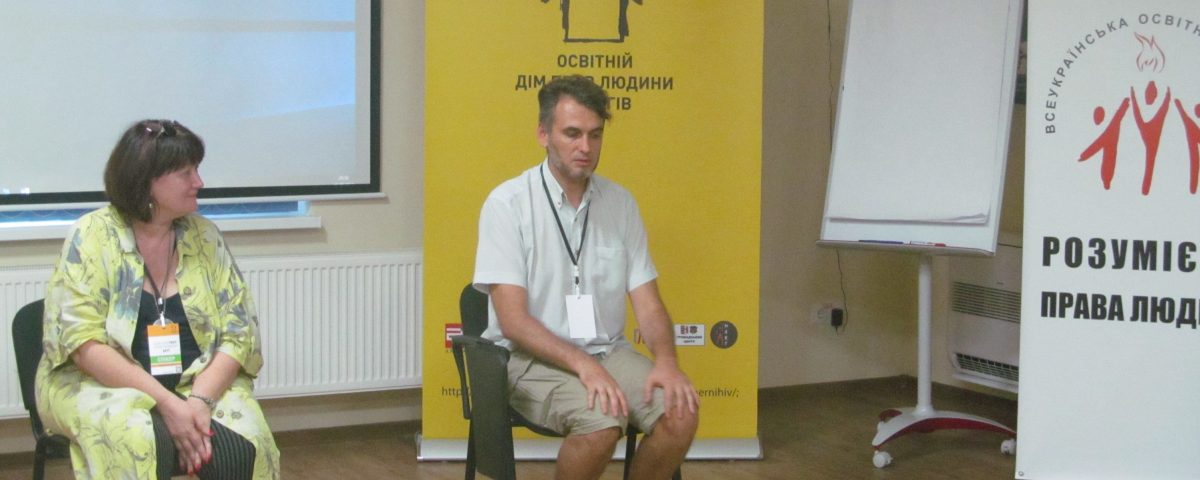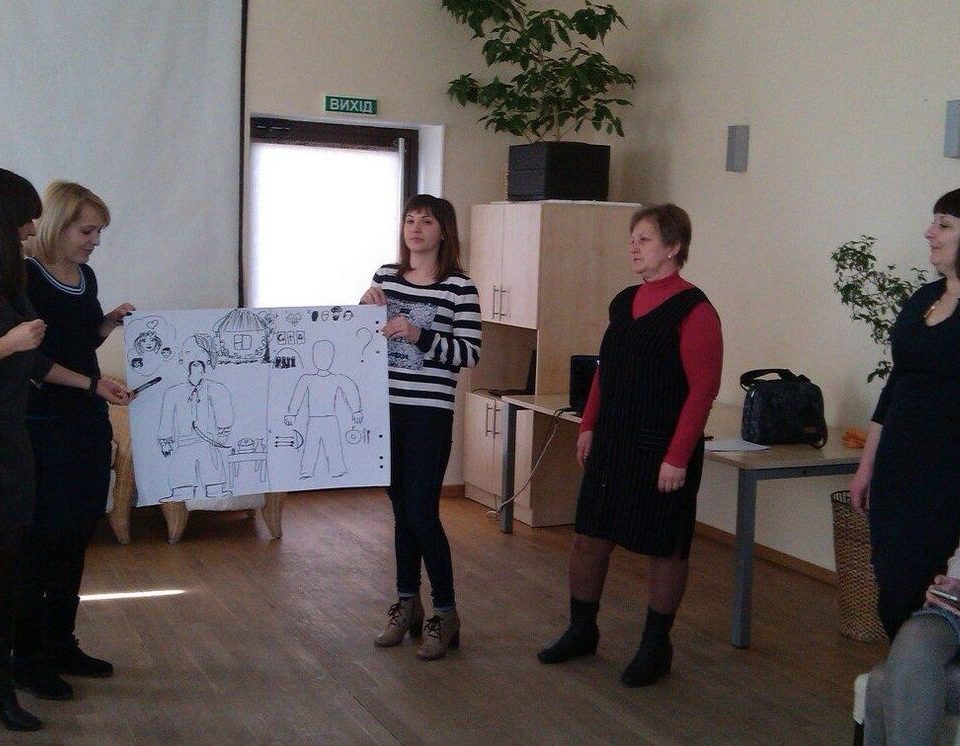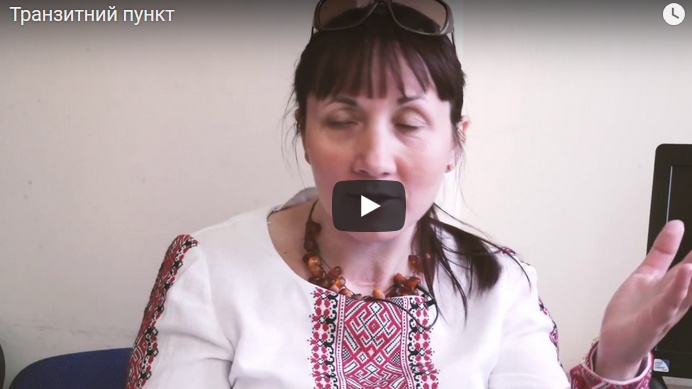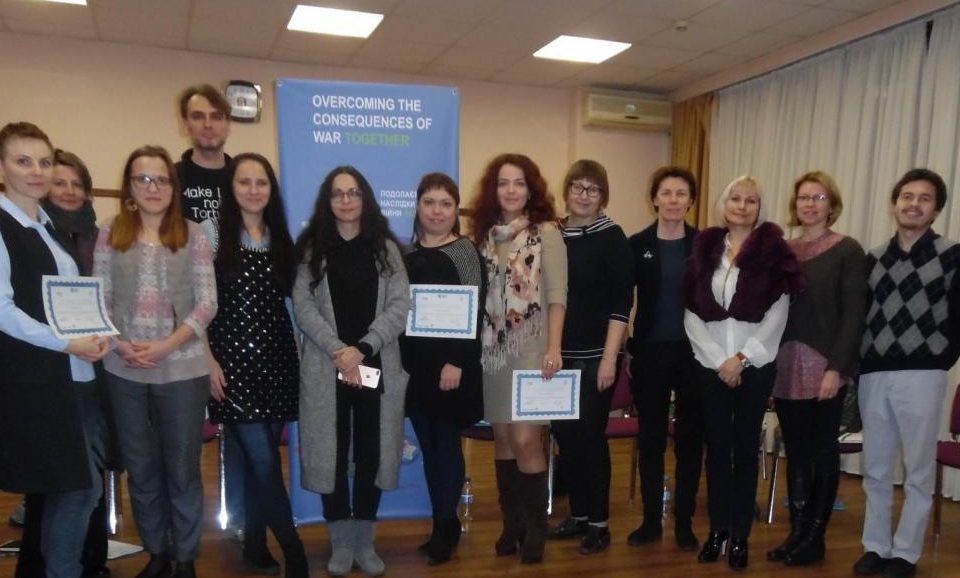The short film “Transit Point” as a result of one of our sub-granted projects for discrimination overcoming associated with the conflicts was shown at “The Human Rights Educational Festival 2017“ in Chernigiv

Training of men on how to deliver seminars and information campaigns on counteracting the domestic violence caused by the war conflict in Ukraine continued
12. June 2017
Training on effective strategies for anti-discrimination work in Ukraine has been concluded
19. December 2017The historical context is very important to explain the common factors that are shared by our society. The formation of negative common factors and appearance of misunderstanding among the population (both among internally displaced persons and the host party) caused by the conflict in the East of Ukraine, is largely due to the lack of knowledge about historical events. The common factors set in process of the society formation often lead to discrimination especially towards the unprotected segments of the population.
The sub-granted project “Spiral of History” was implemented to study and attract public attention to the historical relationship, to dispel myths and stereotypes as well as to enhance the anti-discrimination thinking among people. The short film “Transit Point” was produced within this project.

The documentary film “Transit Point” covers such topics as prejudices occurred in Ukraine in the course of the war and reminds the audience by the Lemcos ethnic community example that prejudices against immigrants and displaced persons have historical continuity. Three main characters tell us the story of the Lemcos that were forced to relocate from their native villages situated at the foot of the Tatras to Peremozhnoe village, Luhansk Oblast for policy reasons in 945. In 204 due to military operations and Peremozhnoe bombing this ethnic community was again forced to leave their homes and “return” to Western Ukraine to start living anew. Ironically, as a result of the current war in the East of Ukraine, they returned to their historical homeland whereof they were expelled in 945 but this time they are alien or considered to be “not belonging here” like until recently in Peremozhnoe. Interestingly, the prejudices regarding re-settlers are often reasoned that they “are not originated from here” and therefore they are alien. And despite the fact that this is not the case with Lemkos, they like other re-settlers are considered to be strangers. This fact completely contradicts the logic of the often described prejudice on “(non) membership” characters.
Basing on the history of the Lemkos the film points to the paradox and irrationality of prejudice and discrimination and at the same time indicates their historical dependence.
The project “Spiral of History” was implemented by Olga Platonova from the non-government organization “Sumshchyna Actyvna” and Oleksey Bida. They are also civil society volunteers and attendees of our educational training course “Strategies for preventing and overcoming discrimination caused by military conflict”. With the aid of “Transit Point” and the held training Olga Platonova and Aleksey Bida set up a dialogue between the internally displaced persons and Sumy city social workers.
One of the reasons for the sub-granted project was the prejudice and tension between internally displaced persons and representatives of Sumy host society. For example, re-settlers often communicate with social services and civil organizations that currently perform a number of important missions in Ukraine. The current critical social policy as well as the tough economic situation in Ukraine due to the war often lead to conflicts between the above mentioned groups and to the renew stereotypes and development of discrimination scenario.
The educational training took place from July 2 to July 22 with coaching support from Olga Platonova. It was attended by 4 people, including internally displaced persons, civil volunteers, psychologists, the job center employees and Sumy social workers, representatives of the parties who are often in conflict as a result of the war in the East of Ukraine. The dialogue form provided the grounds for the training that allowed the attendees to communicate freely, discuss topics of concern and answer the controversial issues.
The film “Transit Point” was shot with the same educational and anti-discrimination purpose and it has a written training manual how to work with this film to develop anti-discriminatory thinking. The film had its premiere on August within “The Human Rights Educational Festival 207” in Chernigiv, which was attended by civil society volunteers whose activities are directed at the defense of the people’s rights suffering from military operations in the East of Ukraine.

The spectators including the civil social volunteers highly appraised the effectiveness of the method and expressed their willingness to use the film “Transit Point” in their anti-discrimination work in the future. For example, by including the film into the film clubs, various festivals and trainings programs. They also offered to show the film to schoolchildren, especially those among which there are children of re-settlers and local ones, and even offered to include it in the extracurricular and educational school programs.




